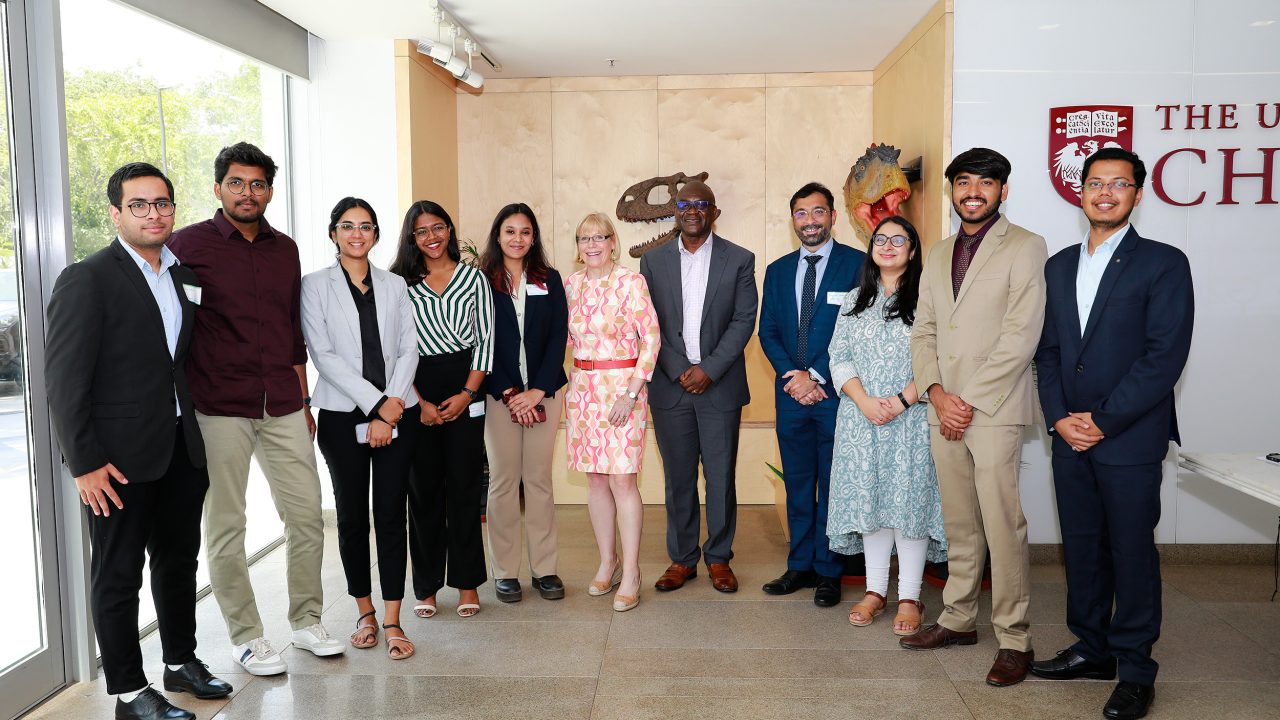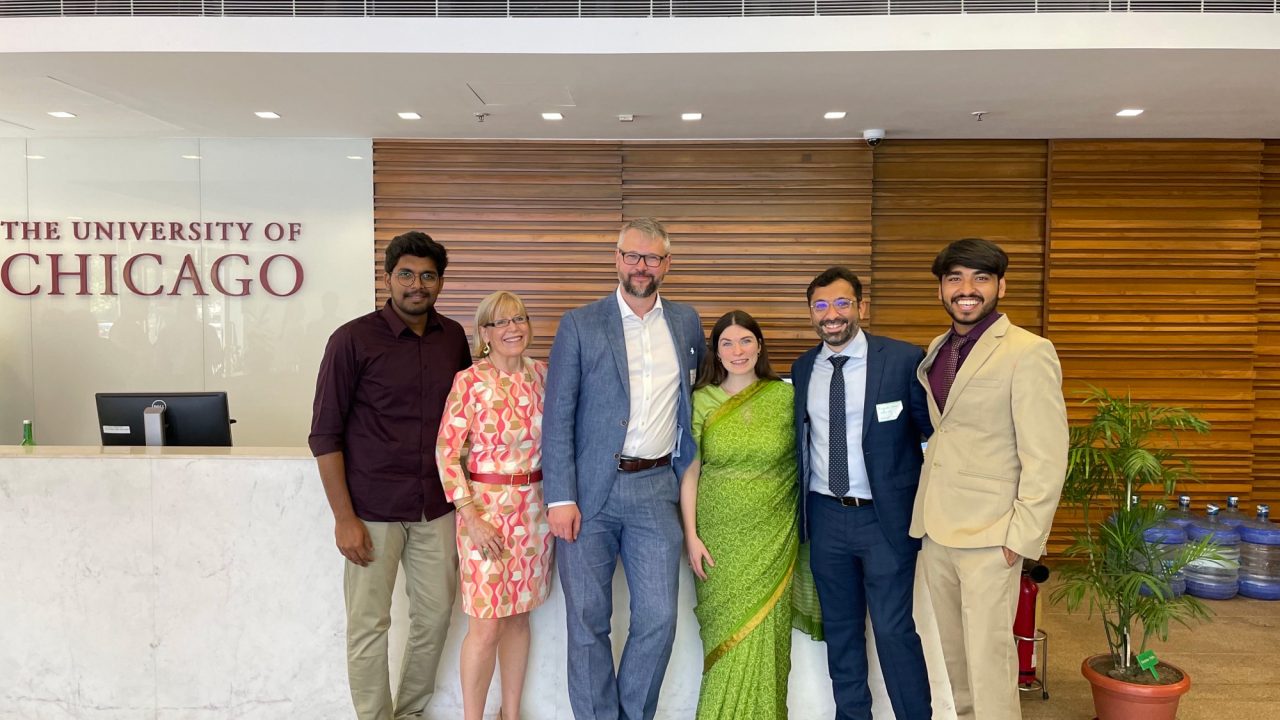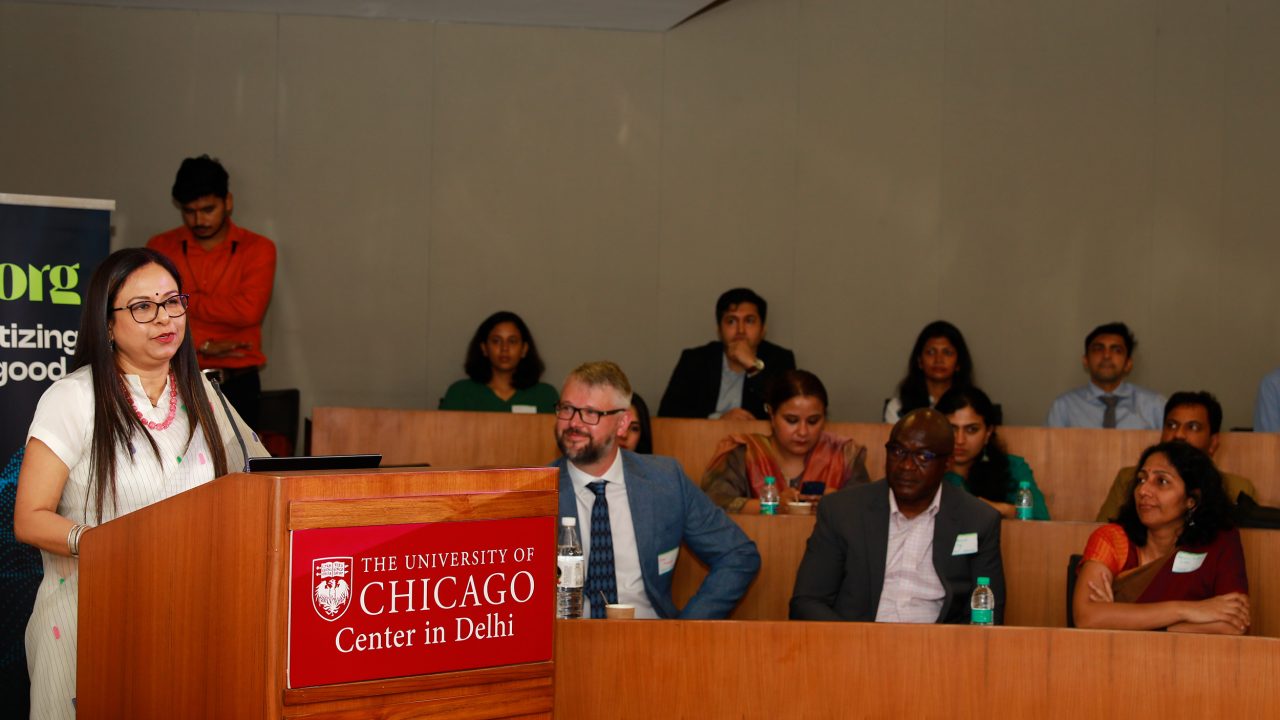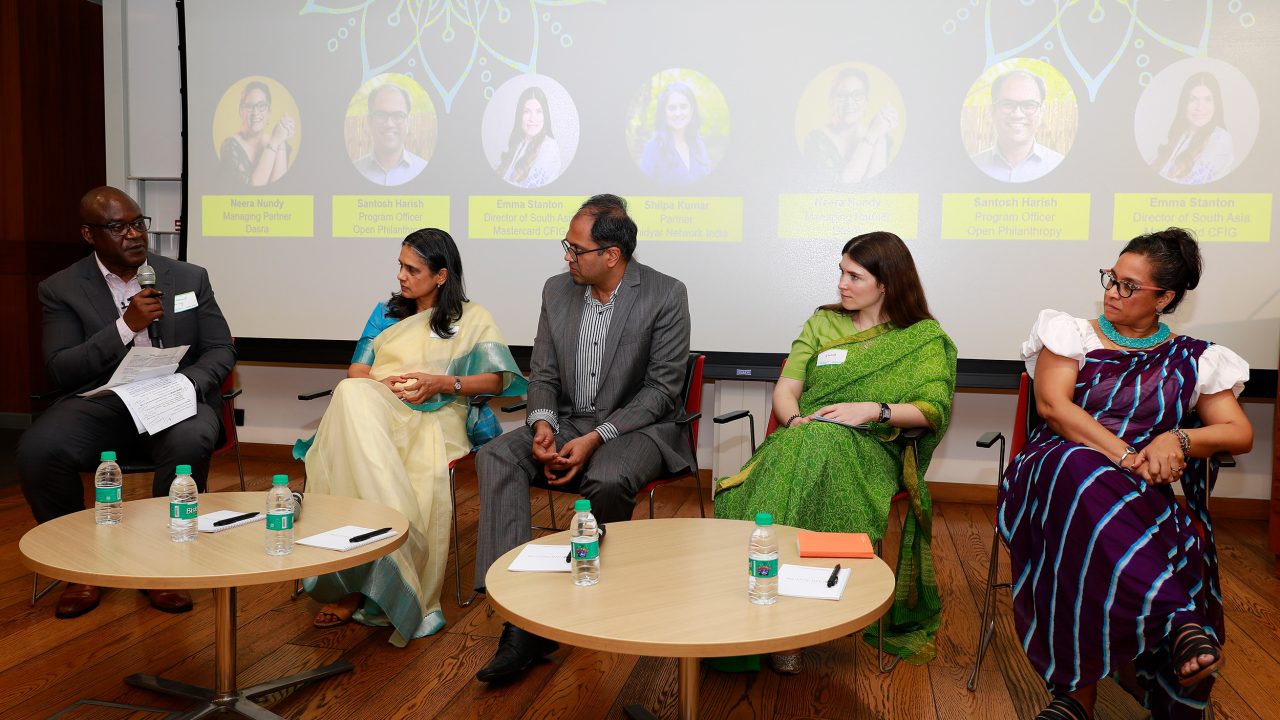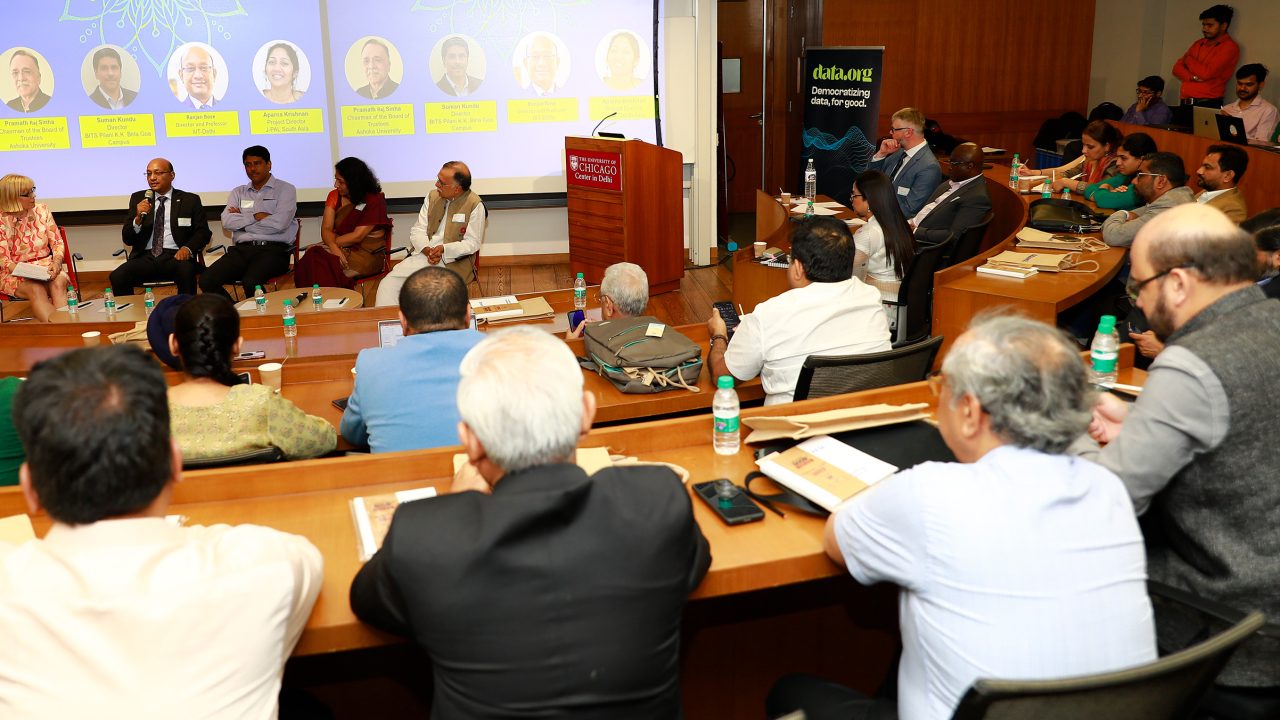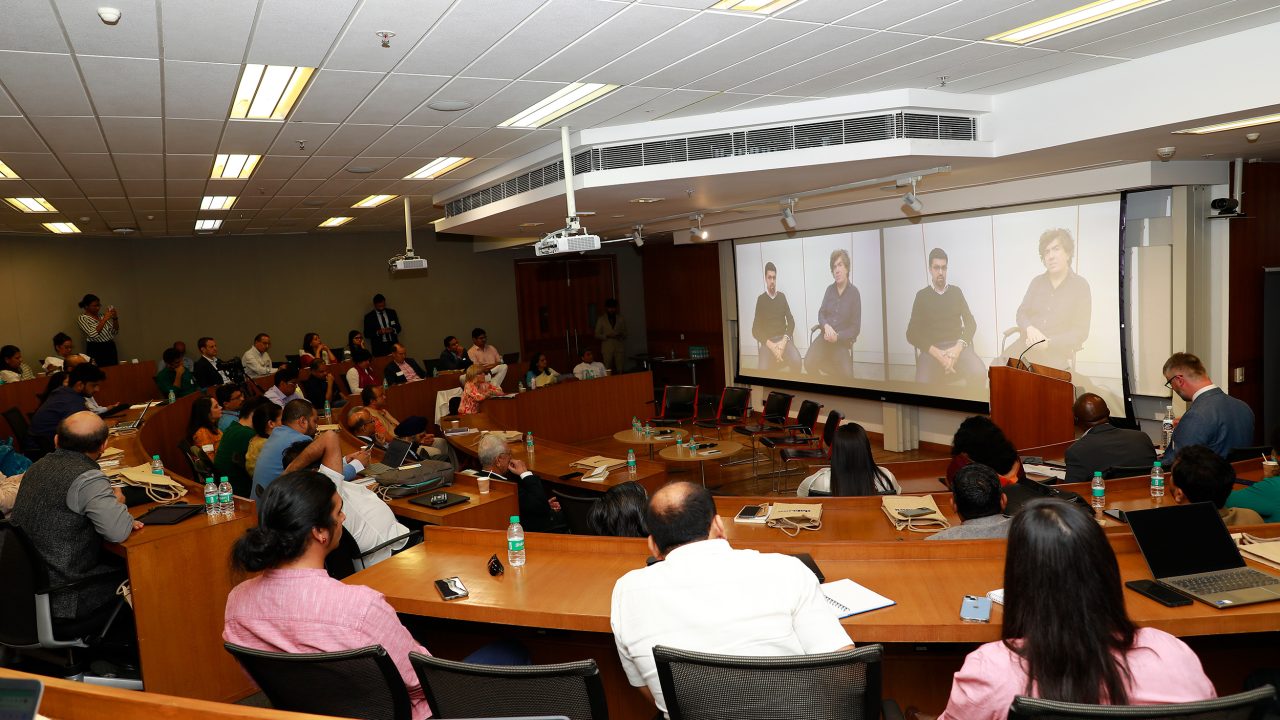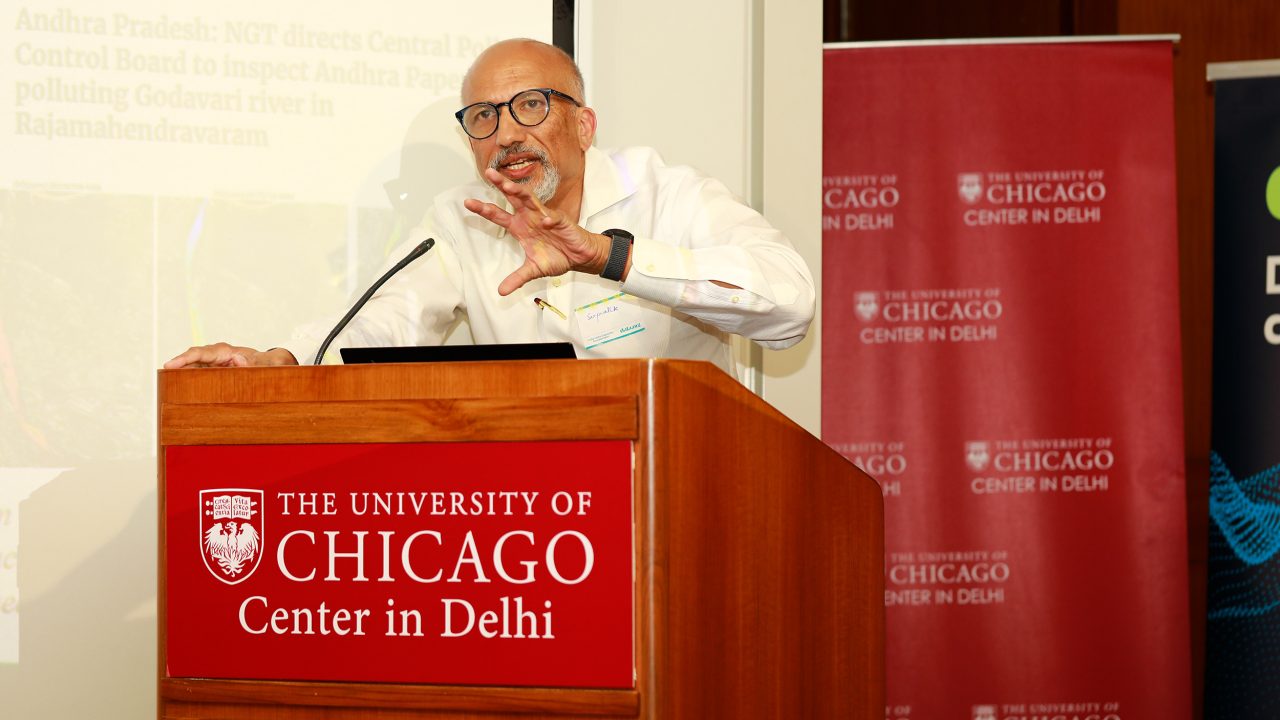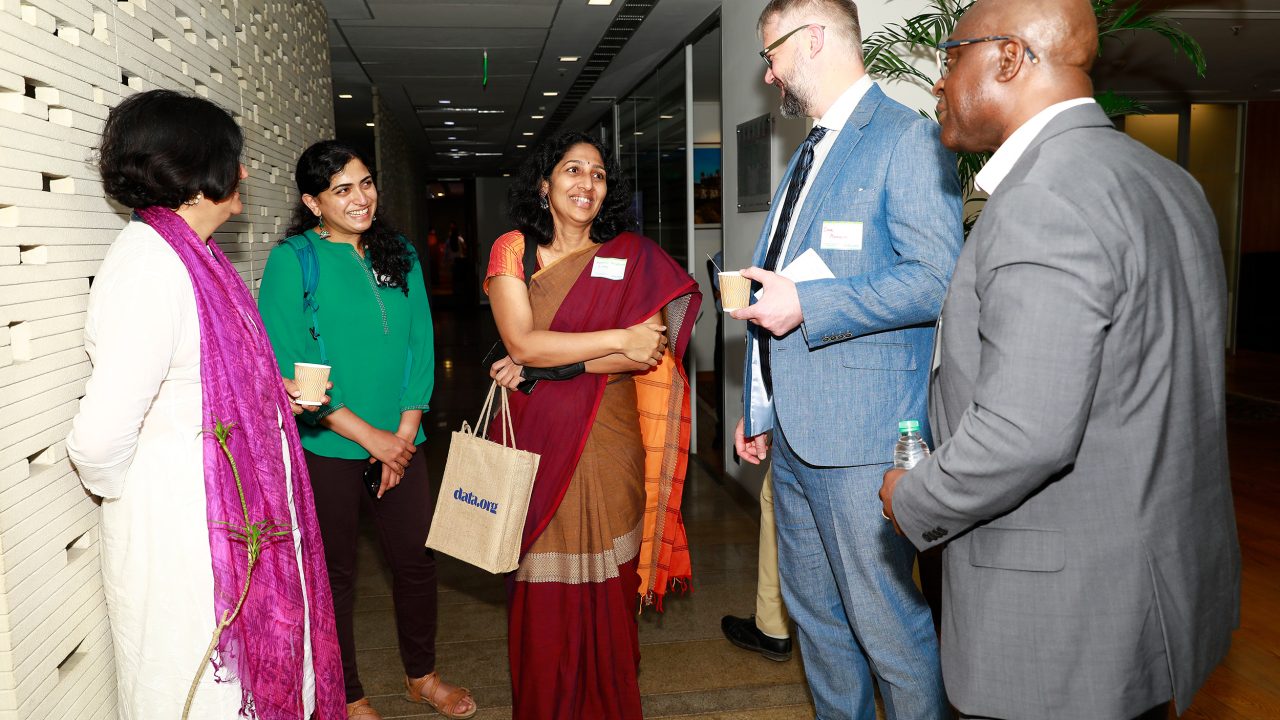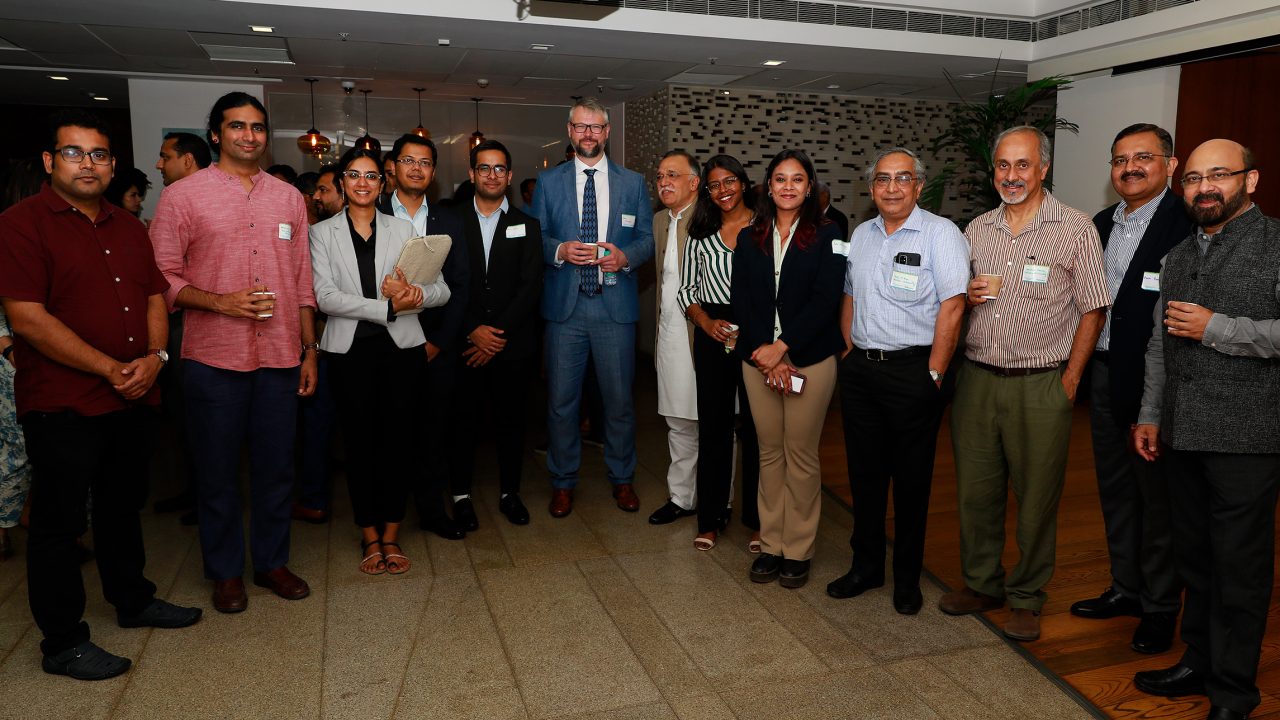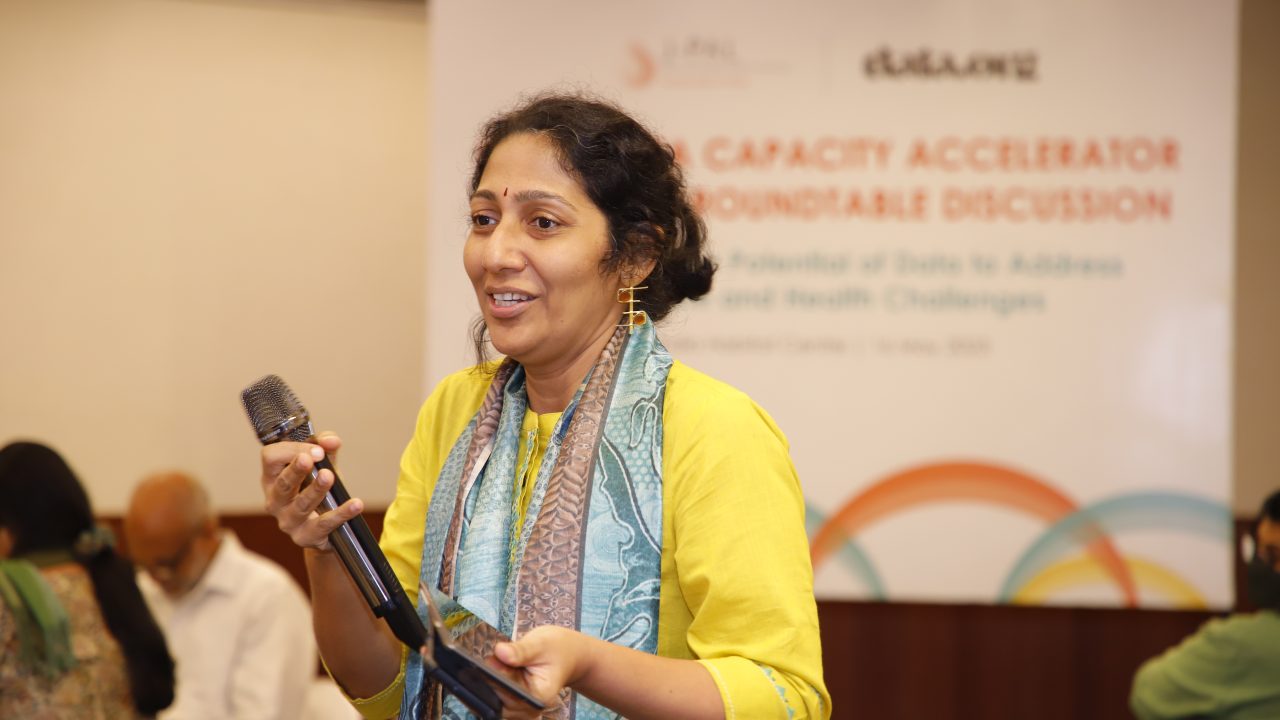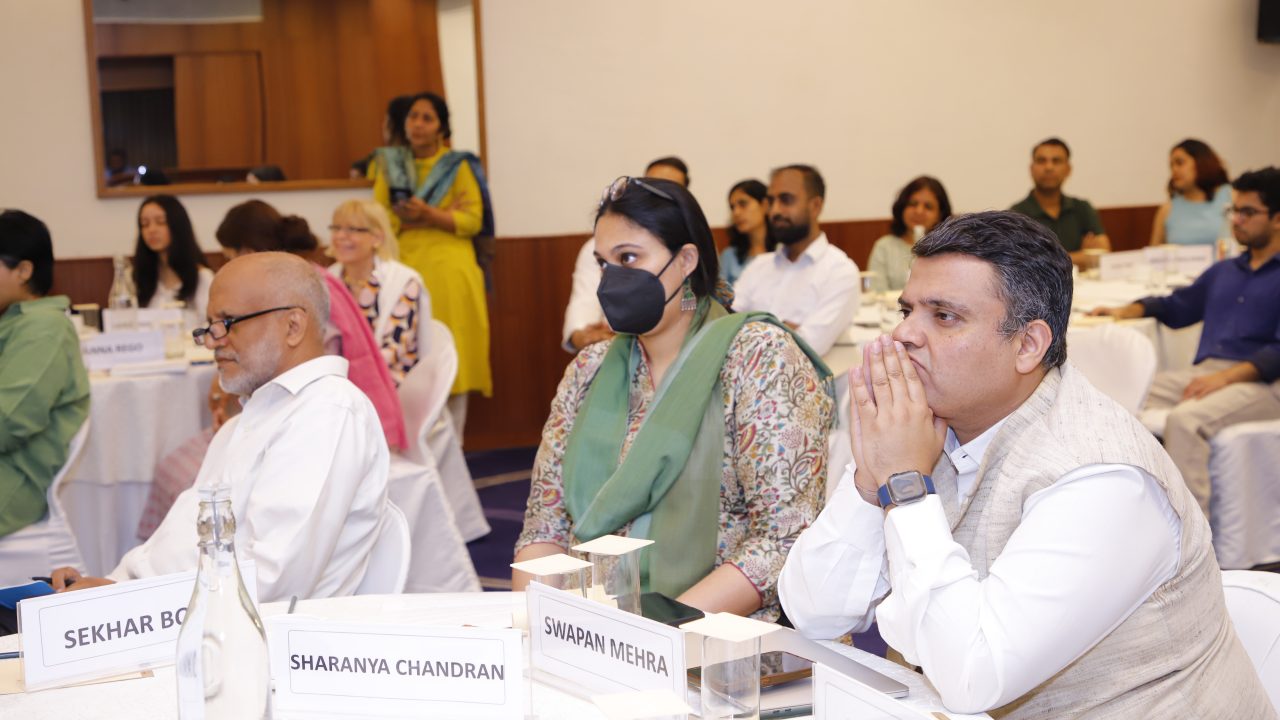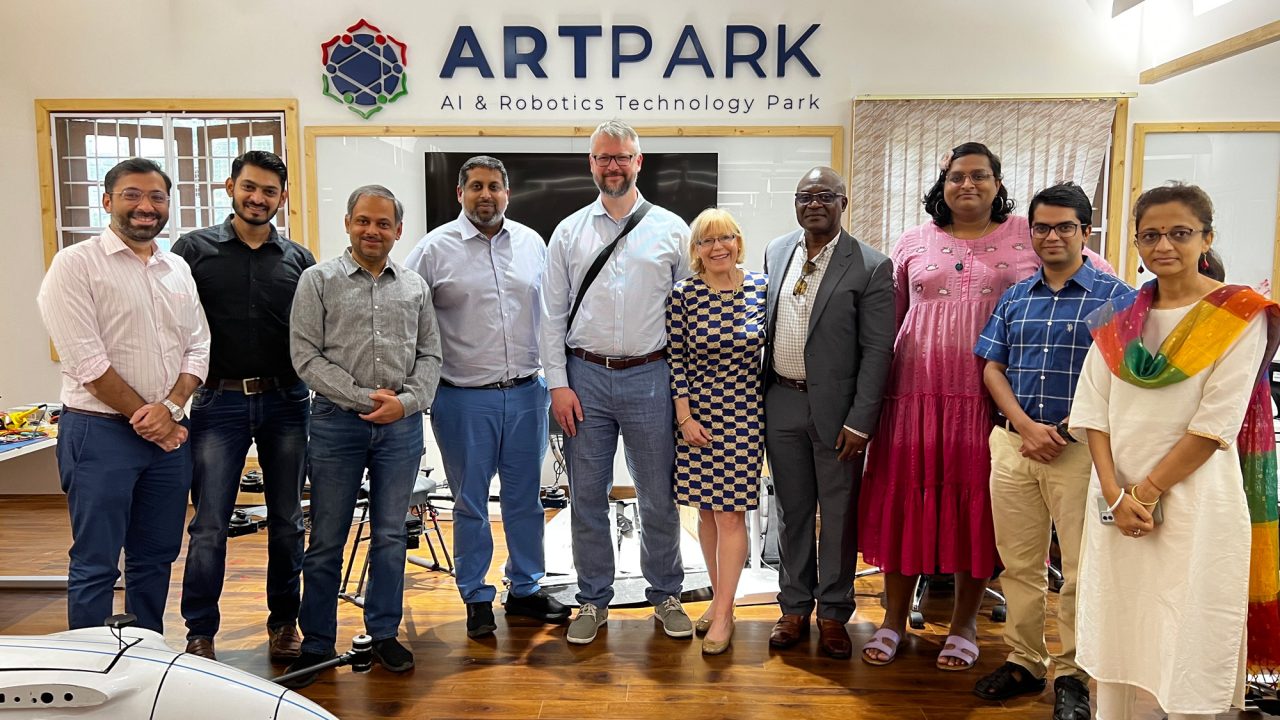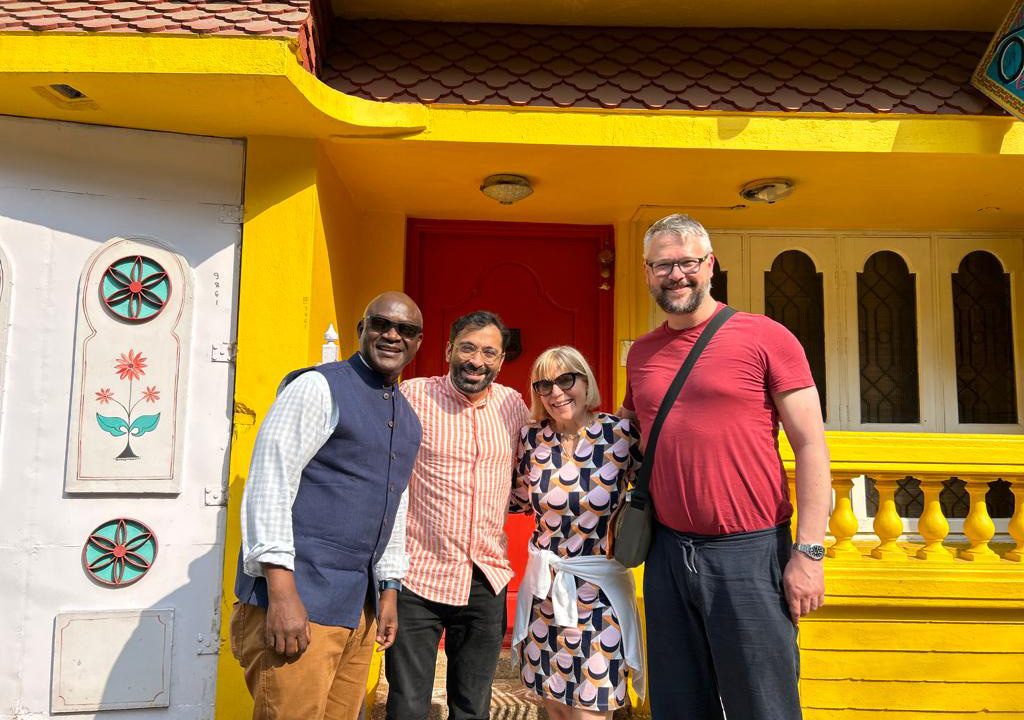While zooming is convenient, nothing beats meeting face-to-face in our digitally-connected world. Our recent trip to India to meet with our current — and hopefully future — partners only further proved this point.
Being physically present helped us hear firsthand about the specific challenges, cultural nuances, and social dynamics at play locally. Not to mention the opportunity to share meals, hear insights, and engage in casual conversation — all critical as we build trust and collaboration toward a common purpose.
The reason for our trip was to launch the India Data Capacity Accelerator, part of data.org’s Capacity Accelerator program supported by Wellcome. The program aims to create curriculum, resources, and interdisciplinary and experiential learning programs to train data practitioners at the intersection of climate and health.
We can’t act fast enough on climate.
The World Health Organization estimates that climate change is expected to cause 250,000 additional deaths per year between 2030 and 2050. And we learned that doing this work in India — where there is a broad understanding of the urgency and a cross-sectoral commitment to action — poses a tremendous opportunity for developing effective solutions.
Climate justice, gender justice, social justice, and social protection are all interrelated. We need to really recognize that this whole question of justice and how data can unblock the system and understand real needs becomes very important.
Professor N. Vinod Chandra Menon, International Coordinator, G20 C20 Working Group on Resilient Communities: Climate, Environment, and Net Zero Targets
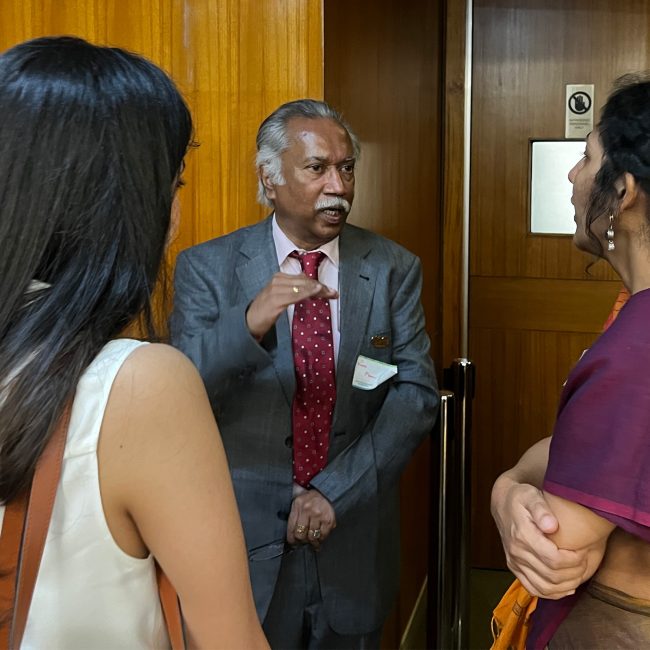
Under the auspices of the G20-C20 and hosted by the University of Chicago Center in Delhi with our partner J-PAL South Asia, the convening brought together nearly 100 passionate leaders to discuss how we can together build a workforce using data to combat climate change and its impact on human health.
With the announcement of our new partnership with three prestigious universities (Ashoka University, Birla Institute of Technology and Science, Pilani (BITS Pilani), and Indraprastha Institute of Information Technology (IIIT Delhi) we underscored data.org’s belief in and commitment to working with in-country expertise — expertise that can that inform efforts globally.
In addition to being reminded of the importance of in-person connection, three insights emerged:
1. Data can make sense of multiple, inextricable challenges
Our event speaker, Vinod Menon, observed that climate justice, gender justice, social justice, and social protection are all interrelated — a critical piece that is often missed when developing strategies for social impact. Gone are the days when we could view climate change as a discrete problem to be solved. The impact of the climate crisis on human health is now undeniable. Climate change also has far-reaching consequences for social justice and gender equality. Our time in India shed even more light on the urgent need to harness the power of data to understand these complex interactions and develop effective, intersectional solutions.
2. Smart solutions have the potential to cross continents
The energy and focus on technology we saw in India mirrored our visit to Nigeria earlier this year. Both countries have young median ages and high levels of investment in technology and both are also developing data-driven solutions and training on-the-ground interdisciplinary teams focused on local impact. This is exactly the type of ecosystem work we are investing in at data.org. Recently, Inclusive Growth & Recovery Challenge awardee BASE adapted their cold chain storage solutions from India to Africa. We see that it is possible to have technology and capacity-building advances to cross continents.
3. Don’t underestimate the power of partnering with the government to drive change
It was inspiring to hear the Indian government’s Capacity Building Commission (CBC) share its vision for upskilling government employees in various data-related fields. They shared their comprehensive plans to equip over a million government employees with the necessary skills and knowledge to work with data — effectively and responsibly. This initiative has the potential to create a profound ripple effect of data literacy and expertise across sectors. It also recognizes that data-driven governance can lead to more efficient and effective public services, informed policy decisions, and ultimately, improved outcomes for citizens.
Sure zoom makes work efficient — but without a doubt our in-person time in India (and Nigeria) was our most important takeaway. There is no substitute for collaborating and problem-solving together.
Our conversations in India reminded us of the power of data and technology — including new, transformative technologies like generative AI — to tackle social sector challenges like the impact of climate on human health. Being together also allowed us the time and space to ask hard questions, and to share insights on the responsible use of data and technology — a topic that is in the news daily.
We are so excited to scale our impact and build our partnerships through the India Data Capacity Accelerator, and can’t wait to share our next update.
About the Author
Chief Strategy Officer Perry Hewitt joined data.org in 2020 with deep experience in both the for-profit and nonprofit sectors. She oversees the global data.org brand and how it connects to partners and funders around the world.
Read more